 |
||||
 |
||||
NOAA/GLERL Lake Michigan Field Station, Muskegon, Michigan
Vessel Operations and Research Center
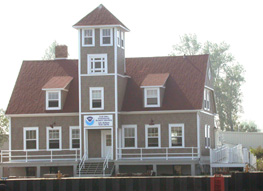 In
1990 the National Oceanic and Atmospheric
Administration's Great Lakes Environmental Research Laboratory (GLERL),
part of the U.S. Department of Commerce,
assumed ownership of the former Coast Guard base at Muskegon, Michigan
on the south side of the channel between Muskegon Lake and Lake Michigan.
The site includes three
buildings and research vessel dockage next to the main building.
In 1993, one of the three buildings was renovated to include scientific
laboratories, offices, and storage, and in 1994 a lead scientist and
his support staff were permanently relocated to the site, which was officially
named the Lake Michigan Field Station. A renovation project was completed
in 2005 on the 100th anniversary of the building. Great care was taken
to recreate the exterior architecture and maintain the historic details
of its original design. While modern materials were utilized, this prominent
building appears just as it did to the lumber schooners in the last days
of sail. Much of the interior spaces, mechanical, and utilities were
upgraded but maintain the color schemes and layout of its early days
in the Life Saving Service.
In
1990 the National Oceanic and Atmospheric
Administration's Great Lakes Environmental Research Laboratory (GLERL),
part of the U.S. Department of Commerce,
assumed ownership of the former Coast Guard base at Muskegon, Michigan
on the south side of the channel between Muskegon Lake and Lake Michigan.
The site includes three
buildings and research vessel dockage next to the main building.
In 1993, one of the three buildings was renovated to include scientific
laboratories, offices, and storage, and in 1994 a lead scientist and
his support staff were permanently relocated to the site, which was officially
named the Lake Michigan Field Station. A renovation project was completed
in 2005 on the 100th anniversary of the building. Great care was taken
to recreate the exterior architecture and maintain the historic details
of its original design. While modern materials were utilized, this prominent
building appears just as it did to the lumber schooners in the last days
of sail. Much of the interior spaces, mechanical, and utilities were
upgraded but maintain the color schemes and layout of its early days
in the Life Saving Service.
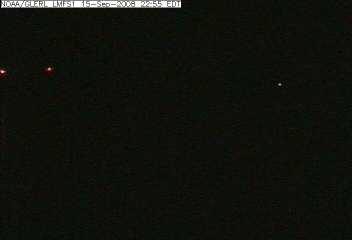
|
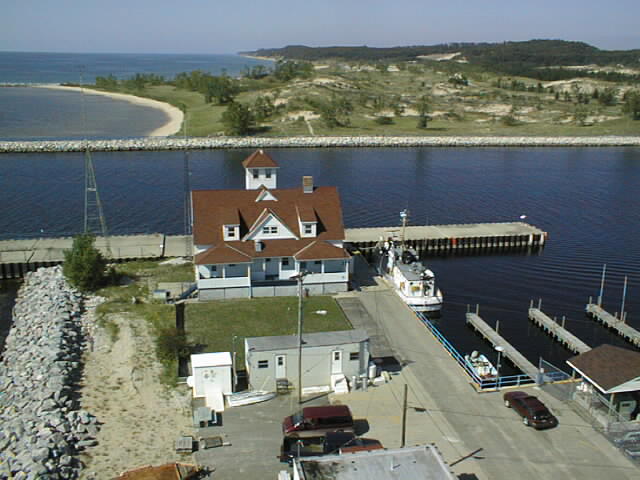
|
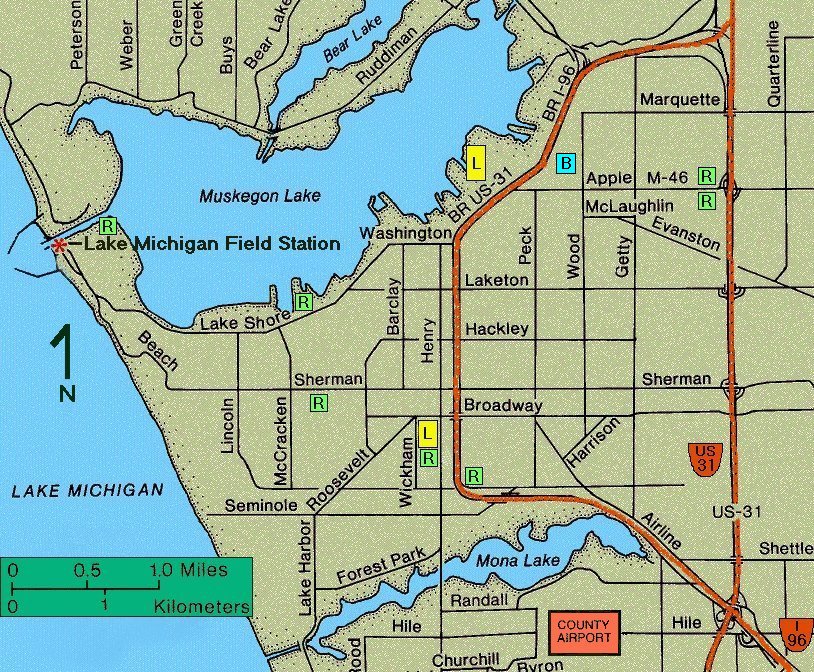
|
Current WebCam views |
Current weather conditions |
Muskegon Area map |
The Lake Michigan Field Station serves as NOAA's base of operations for Great Lakes research and the home port for GLERL's research vessels, which operate throughout the Great Lakes.
The Lake Michigan Field Station now includes research vessel docking and several buildings that provide space for wet and dry laboratories, small vessel storage and repair, a meeting room, dormitories, the Vessel Operations Office, researcher office space, and equipment storage.
Presently, three full-time scientists, six ship crew, a marine superintendent, and administrative support staff are based at the field station. During the active field season, ranks swell to include numerous GLERL researchers, visiting scientists, and student fellows.
The Field Station also houses NOAA National Ocean Services Coast Survey's navigation response team. They are responsible for charting issues and hydrographic surveys on the Great Lakes.
Lake Michigan Research
The Lake Michigan Field Station is GLERL's primary platform for research in Lake Michigan. Current and recent GLERL research projects based in Lake Michigan include:
- Ecology of harmful algae blooms.
- Long term trends in benthic populations in Lake Michigan.
- Salmonid spawning stock abundance, recruitment, and exploitation in the Muskegon River.
- Ontogenetic and seasonal variation of young non-native fish energy densities in Lake Michigan.
- Watershed - Great Lakes interactions: ecological footprint of the Muskegon River watershed.
- An evaluation of bioenergetics modeling for lake whitefish in the Great Lakes.
- Real-time Environmental Coastal Observation Network (RECON).
Real-Time Meteorological Observation Network
Up to date information on weather and sea conditions is necessary for researchers, fisherman, and recreational boaters. GLERL's Real-Time Meteorological Observation Network has eight stations throughout southern Lake Michigan, western Lake Erie, and Lake Huron. The backbone of the system includes the weather station and four webcams at the Lake Michigan Field Station.
Education Programs
The Lake Michigan Field Station has a strong commitment to supporting education and outreach. Each year the station hosts a variety of programs such as open houses, tours, cruises, classes, and workshops for diverse audiences including Congressional staff, reporters, teachers, students, and the general public.
Vessel Operations
The Lake Michigan Field Station serves as home port for all of GLERL's research vessels throughout the Great Lakes. NOAA is committed to innovative ways to improve operations and to stewardship of the environment that we research.
As of May 2006, all three of GLERL's large research vessels operate petroleum-free, making them the first ships in the U.S. fleet to operate petroleum-free. The ships use 100 percent soy biodiesel for engine fuel, canola-based motor oil, and rapeseed-based hydraulic oil for its deck crane, winches, transmission, and steering gear.
+ see GLERL "NOAA Green Ship Initiative Brochure" [pdf]
United Soybean Board "Biobased Solutions for Government" web site:
+ more information
+ profiile "NOAA Operates Three, 100 Percent Biobased Ships" [pdf]
The change to non-petroleum products results in operating improvements as well as dramatic reductions in emissions. The biodegradable vegetable oils also offer an additional level of environmental protection in case of a spill or leak.
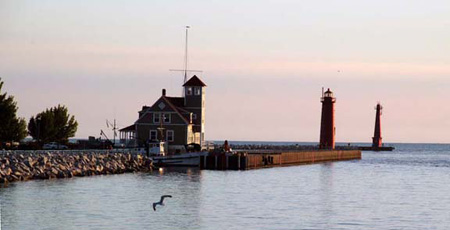
For more information about the Lake Michigan Field Station and the research activities centered there, please contact:
Dennis Donahue
Marine Superintendent
NOAA/GLERL
Lake Michigan Field Station
1431 Beach St.
Muskegon, MI 49441-1098
231-755-5173
Fax: 231-759-2414
For more information about Muskegon, go to the Muskegon Area Chamber of Commerce web site.
Last updated: 2007-01-29 mbl









